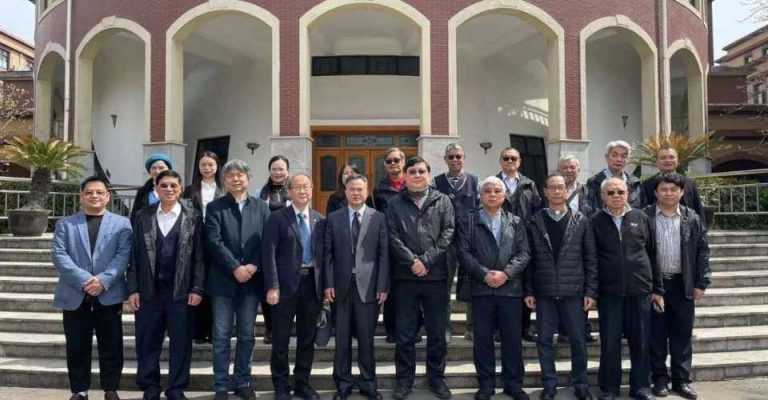A Protestant seminary in China signed an agreement with two state-sanctioned bodies to promote President Xi Jinping’s controversial policy of sinicization of Christianity and thought.
The East China Theological Seminary, a government-approved institute based in Shanghai, signed the agreement with the National Committee of the Three-Self Patriotic Movement of Protestant Churches of China and the China Christian Council, in accordance with the ” Patriotic Education Act” of the communist government, according to a report by China-Aid, a U.S.-based rights group led by exiled Chinese dissidents.
This politically motivated agreement between public organizations and the theological seminary is highly unusual and a complete departure from the usual path of faith and the Church, the group said.
According to the agreement, the seminar will follow the “outline of a five-year work plan for advancing the Sinicization of Christianity (2023-2027)” approved by the People’s Congress and the Chinese People’s Political Consultative Conference of the Communist Party Chinese (CCP). ).
The new plan emphasizes the study of Xi Jinping Thought and aims to continually improve the compatibility of Christianity with socialist society. It promotes the Sinicization of Christianity beginning with the Sinicization of theological thought, striving to interpret doctrines and regulations in a way that aligns with the core values of socialism.
The seminary had already held several seminars last year to launch the five-year work plan, including a “Seminar on the Sinicization of Christianity” and “Preaching in Shanghai,” according to information published on the official website of the Three-Party Patriotic Movement. -Autonomies of the Patriotic Movement of the Three-Self. China Protestant Churches, a state body that oversees the affairs of the country’s Protestant churches, ChinaAid reported.
During the seminars, speakers discussed the theme “Be Patriotic and Faithful, So Can You Be Promising” and explored “the development of Sinicization of religious doctrines in China.”
The State Ethnic and Religious Affairs Bureau of Shanghai’s Huangpu District said it would help monitor the work of the Christian community in Huangpu District.
China, officially atheist, has asserted more control and launched a new crackdown on religious groups and activities since Xi came to power in 2012.
The CCP has consolidated and implemented a series of policies and regulations, including the Sinicization of religions, a political ideology that aims to impose socialist principles on individuals and society to ensure loyalty to the party.
Under the Sinicization policy and new regulations on religious affairs, the party has systematically and gradually undertaken deliberate transformations of religious beliefs, with an increasingly stifling level of interference, ChinaAid reported.
This includes control of religious individuals, places and institutions such as seminaries.
This year, the party passed the “Patriotic Education Law” to further consolidate these efforts. It encourages and supports religious groups, religious schools and places of religious activities to conduct patriotic education.
The aim is to strengthen the national consciousness, civic consciousness, legal consciousness and patriotic feelings of religious personnel and believers, guiding religion to align with a socialist society.
The open collaboration between the East China Theological Seminary in Shanghai and the government to sign a highly political “sellout” deal will only lead to further loss of identity for the seminary, the ChinaAid report added.
The Chinese constitution recognizes freedom of religion or belief. However, rights groups often rank the Chinese government among the worst attacks on religious freedoms in the world.




